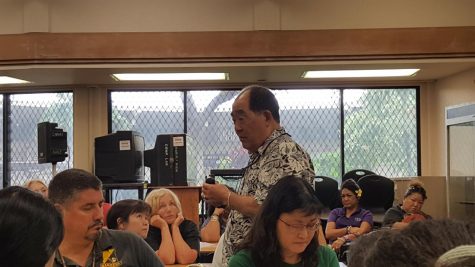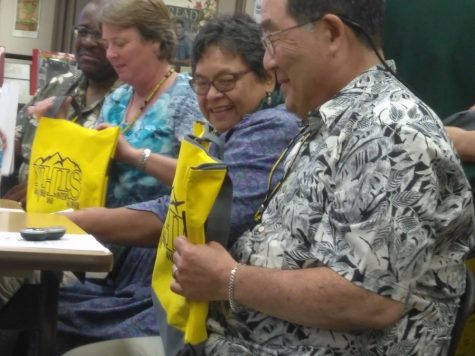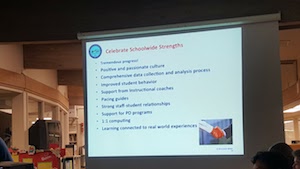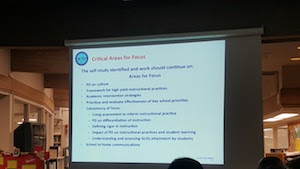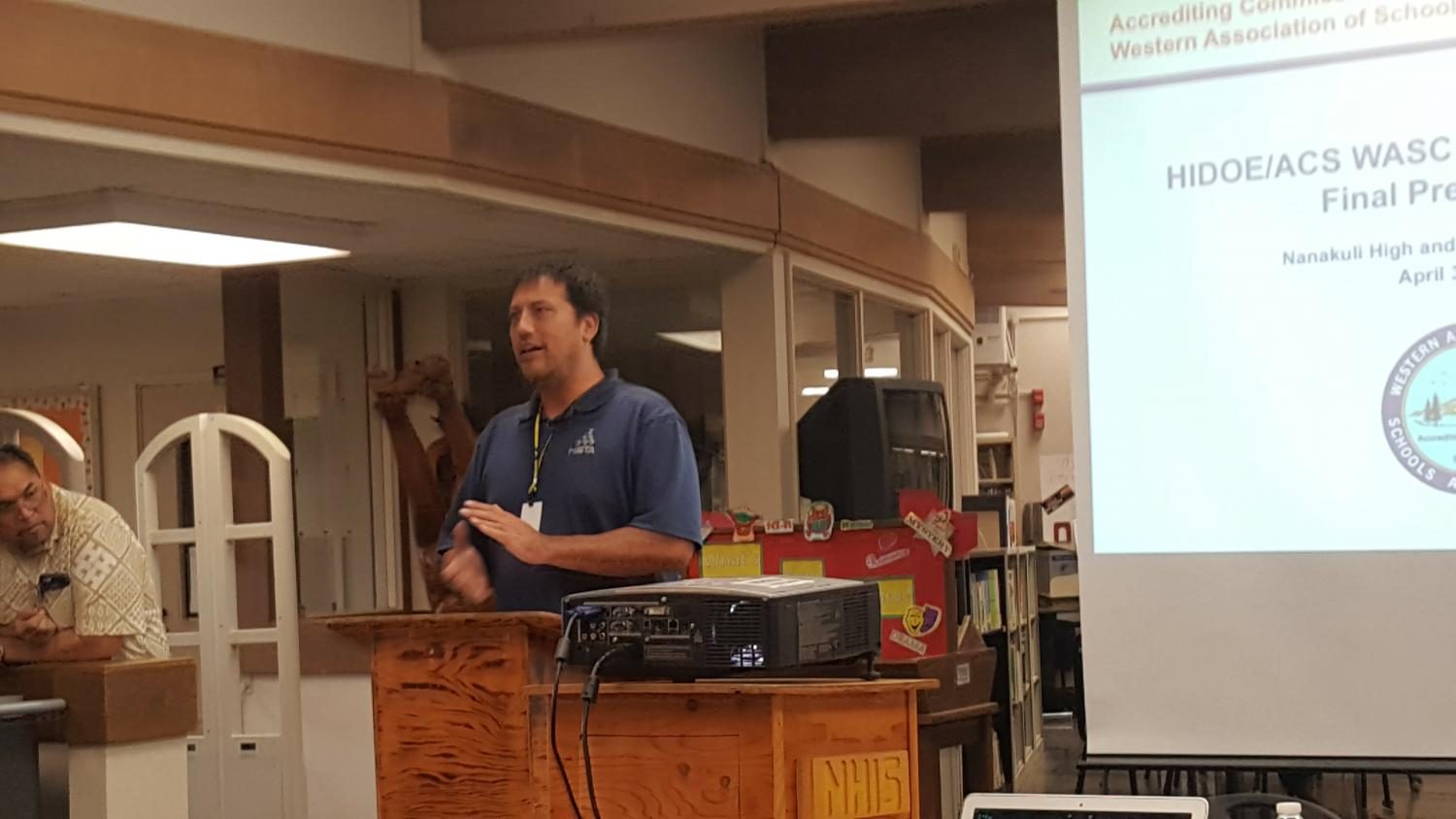WASC Watching Wonderful Things Happen at NHIS
April 3, 2017 was the first day of the WASC accreditors evaluation process of NHIS. It was also the first day for Nanakuli Elementary and Nanaikapono Elementary schools who were also visited by WASC Visiting teams.
The NHIS WASC Visiting team was composed of six accreditors looking to find if what was stated in the NHIS self-study report is being applied in the school. They then make a recommendation to the WASC board on how many years before a revisit should take place or that a school be put on probation and not be accredited. The revisit term could be one year, two years, three years, or none at all.
The six accreditors walked around the school stopping in and out of several classrooms, eating lunch with students, and asking students questions about the school.
Based on the report, the accreditors were expecting that the school was making improvements and the visitors were interested in seeing how the school is going to make the improvements happen.
Odie Douglas, an accreditor said, ”The expectations from the report is that this is a school that has a lot of things going on. I’m looking forward to making some improvements for all children, I was interested in seeing how they’re going to make that happen and what the level of commitment was to make that happen.”
Teachers found that having the accreditors come into classrooms did not cause any problems.
Blythe Emler, band teacher, said, ”To be honest I didn’t have any problems with them coming to my classroom. The observer was in so briefly that we actually didn’t really notice that he was there.”
Teachers like that the WASC team got to see something other than just the core classrooms and experience the relationships that teachers have developed with their students.
Emler said, ”I like that they were able to see something other than regular core subjects. The class that they came to we have really good relationships between me and the students because that’s a really small class.”
Teachers also like the WASC team’s findings and like that they gave the school feedback on how to make the school a better place.
The WASC Visiting Team share the following with the faculty and staff on April 6:
Schoolwide Strengths:
Tremendous progress!
Positive and passionate culture
Comprehensive data collection and analysis
Improved student behavior
Support from Instructional coaches
Pacing Guides
Strong staff-student relationships
Support for PD programs
1:1 computing
Learning connected to real work experiences
Schoolwide Areas for Focus:
PD on culture
Framework for high yield instructional practices
Academic intervention strategies
Prioritize and evaluate effectiveness of key school priorities
Consistency of focus
School to home communications
Kori Nishi, 8th grade P.E. teacher, said, ”I think it was very nice to see so many positive things that our school is doing. It’s good to know exactly what we need to fix to make our school better.”
Students also feel that the visit was not only helpful however also inspirational.
Jolynn Peoples, grade 7, said, ”I feel pretty great, although many people talk negative about our school, the WASC came and gave not only me but also my teachers hope and inspiration.”
Darin Pilialoha, NHIS principal, feels that the WASC team’s findings were accurate however it is always good to have feedback to help the school grow.
Pilialoha said, ”I had a positive feeling after hearing the end debrief from the visiting team. However, what is important is having good information and feedback on how to move the school forward.”
The school has been making several changes to classroom instruction and relationships with a focus on Multi-Tiered Systems of support and Argumentative Writing strategies being implemented schoowide.
Robin Kitsu, NHIS WASC FOL Coordinator, said, ”I didn’t realize how much of an impact based on what the visiting team said it had. Over 90% of the teachers had pacing guides. The number of programs that try to connect real world experiences to the classroom. In other words not just doing work just to do work but you’re trying to connect it to things out there. Project based activities, lessons or problem based.”
The WASC Visiting Team felt that the students are really making their voices heard and are very passionate about the school.
“If there are as many more students that feel this passionate about the school and continue to knock down doors and make their voices heard that holds very well for the future of this school and the reputation that the kids really want to change,” said, Felicia Linton, an accreditor.
Teachers found the WASC teams findings moving.
Kevin Tynan, teaching support, said, ”We are better than our test scores indicate. I thought that was an incredibly moving statement.”
“The amount of progress we have made since the last time, I didn’t realize how much we’ve done, said Kitsu”
Pilialoha believes that the school should not need a WASC visit to do something about problems or growth we need in our school.
Pilialoha said,”It is really about the process. It should be about consistently looking at our data and looking at how we address the findings. It should not be about waiting for an accreditation visit to act upon things. The accreditation process should be an ongoing process.”
NHIS is expecting the results in late July.
